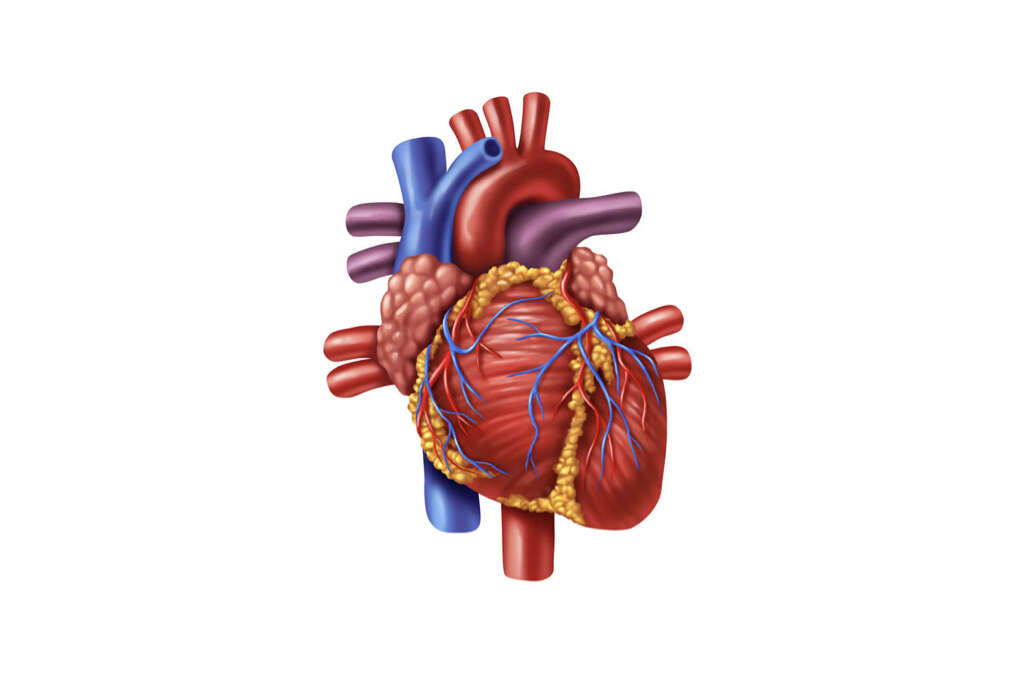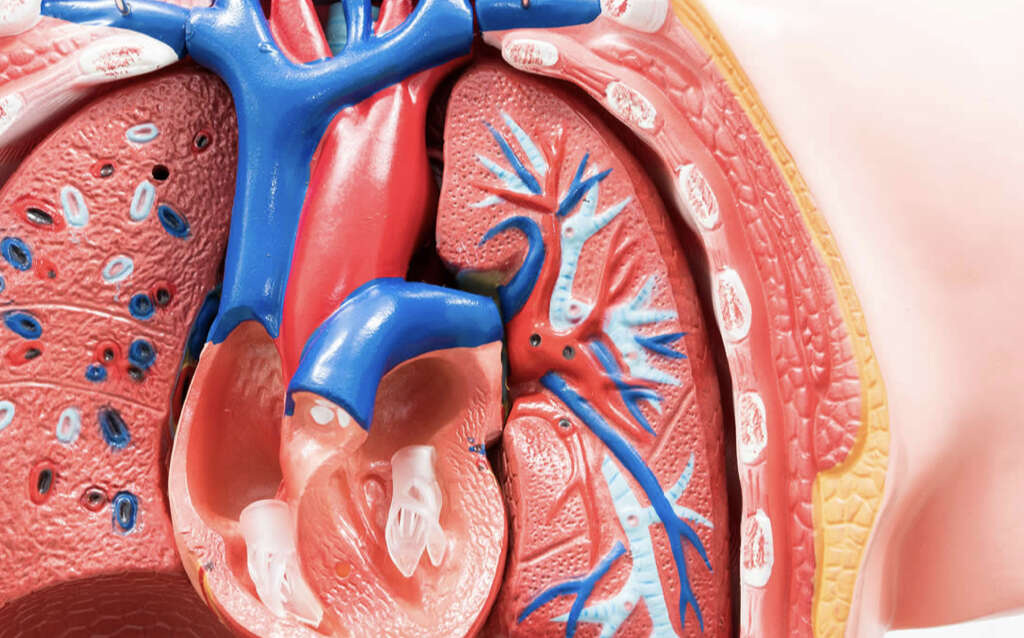What Is a Cardiomegaly?
Cardiomegaly isn’t a disease, but rather a medical term that refers to an enlarged heart. Typically, cardiomegaly is a sign of another condition such a heart disease or a heart valve problem. It may also be an indication that the affected person previously suffered a heart attack and now has an enlarged heart as a result of stress and damage.
The effect of an enlarged heart on a person’s life expectancy depends on a variety of factors, including the underlying cause of the condition. If appropriate treatment is given promptly, the heart may return to a normal size. In some cases, however, the heart may never return to normal size and treatment may serve to simply prevent it from continuing to enlarge.

1. Causes
An enlarged heart may be caused by short-term stress on the body, such as a medical condition, coronary artery disease, weakening of the heart muscle, or pregnancy. Any condition that causes the heart to pump harder than it usually does can potentially lead to cardiomegaly.
Cardiomegaly can also occur due to a congenital heart condition (one that you’re born with). It can happen if you have high blood pressure, fluid around your heart, blocked arteries in your heart, or heart valve disease. Excessive iron in the body and rare disease can also affect your heart and cause it to become enlarged.

2. Risk Factors
You may be at a higher risk of developing cardiomegaly if you have high blood pressure (higher than 140/90 millimeters of mercury), congenital heart disease (a condition that occurs at birth and affects the structure of your heart), or heart valve disease (a condition that damages the valves and affects blood flow through the heart).
Another risk factor is a family history of cardiomyopathy or enlarged hearts. If you have a parent, sibling or other immediate family member who currently has or previously had an enlarged heart, you may be more likely to develop the condition as well.

3. Transmission
Unlike diseases caused by pathogens like viruses or bacteria, cardiomegaly is not contagious. This means it cannot be spread to others via sexual contact or through bodily fluids.
Cardiomegaly may be a genetic condition that is transmitted from one or both parents to offspring. However, it most commonly develops as a result of some other heart condition.

4. Diagnosis
Imaging tests are commonly used to diagnose cardiomegaly because they are able to measure the size of the heart as well as its electrical activity and blood movement through the valves and chambers. If you suspect that you have an enlarged heart, your doctor may recommend one or more of the following: CT scan, chest X-ray, electrocardiogram, or echocardiogram.
If your doctor determines that you do have cardiomegaly, he or she will likely order further testing to help determine the underlying cause of your condition. Such testing may include blood tests, a full physical exam, a stress test, or a cardiac catheterization.

5. Signs & Symptoms
Symptoms of cardiomegaly include abdominal bloating, chest pain, dizziness, abnormal heart rhythms and shortness of breath. Some people also experience fatigue, edema (or swelling) and coughing (especially when lying down).
Mild cardiomegaly doesn’t usually cause any noticeable symptoms. Thus, those who have it may be unaware unless the condition worsens. The symptoms listed above are most commonly associated with moderate or severe cardiomegaly and should be checked out by a medical doctor as soon as possible.

6. Complications
Your risk of experiencing complications from an enlarged heart depends on the cause and severity of your condition. Common complications associated with cardiomegaly include blood clots, heart murmurs, heart failure and cardiac arrest.
Blood clots can be life-threatening because they may travel to your lungs and cause pulmonary embolisms. They may also block blood flow to your body’s vital organs. Heart murmurs are conditions that affect the mitral and tricuspid valves of people with enlarged hearts. Though they may not be harmful, heart murmurs should still be watched by your doctor. Heart failure occurs when the heart weakens and can no longer effectively pump blood through the body. Cardiac arrest occurs when the heart stops beating properly and can result in sudden death.

7. Treatment & Management
Treatment options for cardiomegaly vary based on the underlying condition. They may include blood thinners and antiarrhythmic drugs, iron supplements, ACE inhibitors, diuretics, calcium channel blockers or beta- or alpha-blockers.
If your enlarged heart is due to a metabolic disorder such as thyroid disease or diabetes, your doctor may prescribe appropriate medications. You may also be advised to make lifestyle changes to relieve pressure on your heart, such as losing weight, eating more fruits and vegetables, quitting smoking, and working out most days of the week. If you have addictions or other issues that prevent you from doing one or more of these things, talk to your doctor. He or she may be able to refer to a specialist who can guide you through the process of recovery.

8. Prevention
You may be able to prevent cardiomegaly by seeking early treatment if you have a family history of the condition or if you are exhibiting likely symptoms. You may also be able to control your risk by stopping tobacco use, lowering your high blood pressure, and controlling diabetes and high cholesterol.
Changing unhealthy lifestyles and eating a healthy diet are other ways you may be able to prevent your heart from enlarging. You should also exercise regularly and avoid using illicit drugs or abusing alcohol. These proactive measures may help you maintain a healthy heart.

9. Prognosis
The prognosis for cardiomegaly depends on various factors, including the underlying cause of the condition and its severity. However, the earlier the cause of the condition is detected, the better the outcome generally is. Mild cardiomegaly isn’t as serious as severe cardiomegaly.
Some forms of cardiomegaly are permanent and are likely to become progressively worse if treatment is not received for the underlying cause. In patients with heart failure, five-year mortality from cardiomegaly is around 50%.11. Amin, A.; Siddiqui, W. (2020, Aug. 10) Cardiomegaly. Retrieved from https://www.statpearls.com/articlelibrary/viewarticle/18915/

10. When to See a Doctor
It is wise to see your doctor right away if you experience chest pain, fainting, shortness of breath or discomfort in your upper body (such as your back, jaw, neck, stomach or arms). These are all indications of an enlarged heart and should not be ignored.
You should also see your doctor if you have a family history of cardiomegaly and you want to be screened for the condition. It’s easier to treat an enlarged heart effectively if you detect it early, so talk to your doctor if you have any new signs or symptoms that seem to be related to your heart.











